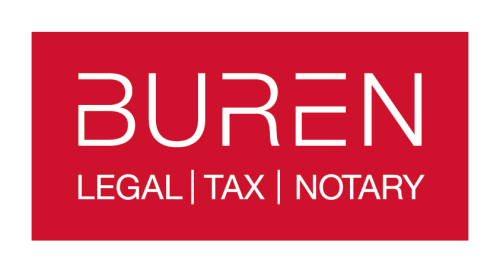
Restructuring of Selecta through a share pledge enforcement
Blog
This blog discusses a ruling of 13 May 2025 of the Amsterdam District Court (NCC Court in summary proceedings) regarding a private share pledge enforcement (ECLI:NL:RBAMS:2025:4217) related to the restructuring of Selecta. It shows that a restructuring not only takes place through a composition plan but can also take place through a share pledge enforcement. Another notable aspect is that the ruling is in English, as the case was handled by the Netherlands Commercial Court (NCC), a chamber of the Amsterdam District Court established in 2019, specialized in international proceedings, and conducting all such proceedings entirely in English.
Facts
The applicant in this case is Kroll Trustee Services Ltd (Kroll). Kroll was appointed as security agent by the lenders of Selecta. The core of the proceedings is to obtain approval from the NCC under Article 3:251 of the Dutch Civil Code for a private sale of pledged shares in Selecta Group B.V. (Selecta). Selecta Group AG (the Parent), a Swiss-based parent company of Selecta, acted as pledgor in the proceedings (together referred to as: the Group). Seagull Bidco Limited (Seagull) was involved as the prospective purchaser of the Selecta shares.
Selecta operates in the field of coffee roasting and coffee vending machines across Europe. The Group has several financing arrangements. To secure these, the Parent pledged its shares in Selecta to lenders, who appointed Kroll as security agent. Kroll was therefore tasked with managing the security interests granted to these lenders.
On 22 May 2025, nine days after the ruling, a short-term loan repayment by the Group was due, which the Group was unable to meet. As a result, the lenders instructed Kroll to enforce the pledge on the Selecta shares.
To avoid Selecta’s bankruptcy, a restructuring of the Group was required, including a sale of the Selecta shares. Kroll and Seagull agreed to a Share Purchase Agreement, the execution of which was made conditional on the NCC’s approval. The purchase price for the shares was set at EUR 1, as the shares had negative value. In addition, Seagull agreed to provide a non-monetary consideration consisting of relieving the Group from a significant portion of its outstanding debt.
Ruling
The NCC judge first established that the case had an international dimension. By agreement dated 30 April 2025, the parties had designated the NCC as the competent court and consented to proceedings in English, confirming its jurisdiction. Furthermore, since Selecta is incorporated in the Netherlands and governed by Dutch law, Dutch law was applied to the case.
The judge noted that the general rule is that enforcement of a pledge on shares takes place through a public auction. However, Article 3:251 of the Dutch Civil Code provides that, with the court’s approval, the sale may be conducted otherwise.
It was undisputed that Selecta was in default under its financial instruments, entitling Kroll to enforce the pledges. The judge had to assess whether an alternative to a public auction would realize maximum – or at least higher – value compared to a public auction. This assessment is conducted in the interests of the pledgor, other pledgees, and collective creditors. The interest of the shareholder whose shares are being sold does not outweigh the pledgee’s and creditors’ interests in realizing the highest possible return.
The submitted documentation indicated a discrepancy between the Group’s long-term viability and its short-term liquidity needs, particularly regarding the short-term debt maturing on 22 May 2025.
The judge therefore reached a twofold conclusion. Firstly, swift action was necessary to prevent the Group from being forced to cease operations due to default. Secondly, options to secure alternative financing in the short term were limited. Kroll argued that an alternative financing arrangement had been available but insufficient. At the court’s request, Kroll substantiated that a public auction would not yield a better return. The court consequently granted the requested approval.
Alternative Restructuring Tool
Pursuant to Article 3:251 of the Dutch Civil Code, the preliminary relief judge may grant permission for a sale in a manner other than a public auction. Private sales under this article are frequently used in the enforcement of a pledge on shares in a public or private limited company (NV or BV). A private sale generally yields a higher return, while statutory transfer restrictions may also prevent a public sale.
This ruling demonstrates that private enforcement of shares can serve as a valuable strategic tool in restructuring a corporate group. In such situations, the purpose of the private sale is not, as with standard enforcement of a pledge, to generate proceeds for the pledgee, since the company’s shares are often worthless due to high debt levels – as was the case here.
A private sale, however, enables the transfer of shares for a nominal amount while simultaneously arranging a settlement with other creditors. It is also conceivable that the pledgee itself becomes the new shareholder, expecting the company to regain value. Shares can be acquired for a symbolic price of EUR 1, with the pledgee writing off part of its debt or, for example, repaying part of the company’s liabilities.
In this case, the purchaser of the shares agreed to a non-monetary consideration whereby the Group was relieved from a substantial portion of its debt. This somewhat vague description could indicate, for instance, a debt assumption or partial waiver, in case Seagull was also a creditor.
In legal literature, it has been argued that this mechanism can offer an effective and less complex alternative to Dutch Scheme proceedings. Compared to insolvency or Dutch Scheme proceedings, a share pledge enforcement has several advantages: the process can be completed more quickly, costs are significantly lower, and the pledgee retains control. There is also less extensive disclosure required towards creditors and the court, unlike in Dutch Scheme proceedings. Particularly when a business remains fundamentally viable but faces liquidity issues, share enforcement can be more effective than a protracted restructuring procedure. A drawback, however, is that the shareholder loses control – unless he is willing to reinvest in the company.
Netherlands Commercial Court
A noteworthy aspect of this case is that the ruling was issued in English, as the proceedings were brought before the NCC. The NCC, together with the Netherlands Commercial Court of Appeal (NCCA), was established in 2019 to strengthen the Netherlands’ business climate for international companies. Proceedings before these chambers require joint consent of the parties to litigate in English and that the matter has an international dimension. The entire proceedings, including the judgment, are then conducted in English. The primary goal of these international commercial chambers is to make the Netherlands more attractive to international parties litigating here.
A condition for establishing the NCC and NCCA was that they would not impact the judiciary’s budget. This has resulted in higher court fees when litigating before these institutions. A recent WODC study indicated that the NCC has not yet reached the expected case volume envisioned at its inception.
Conclusion
This ruling provides a clear example of how a private sale of shares can lead to a successful restructuring. This method represents an alternative and underutilized tool in the restructuring toolbox. For international companies, it is particularly advantageous that such proceedings can be conducted entirely in English. Although the NCC has not yet fully reached its potential, it appears to hold untapped promise.
Keywords
Auteur(s)


